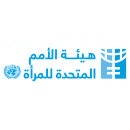Head of Sub-Office (Gaza) - NOD
Background:
UN Women, grounded in the vision of equality enshrined in the Charter of the United Nations, works for the elimination of discrimination against women and girls; the empowerment of women; and the achievement of equality between women and men as partners and beneficiaries of development, human rights, humanitarian action and peace and security.
Placing women’s rights at the center of all its efforts, the UN Women leads and coordinates the United Nations system efforts to ensure that commitments on gender equality and gender mainstreaming translate into action throughout the world. It provides strong and coherent leadership in support of Member States’ priorities and efforts, building effective partnerships with civil society and other relevant actors.
UN Women’s triple mandate, along with its global network and deep policy and programming expertise, continues to endow the Entity with a unique capacity to: (i) support Member States to strengthen global norms and standards for gender equality and women’s empowerment, and mainstream gender perspectives in other thematic areas; (ii) promote coordination and coherence across the UN system to enhance accountability and results for gender equality and women’s empowerment; and (iii) undertake operational activities to support Member States, upon their request, in translating global norms and standards into legislation, policies and strategies at country level.
UN Women plays an innovative and catalytic role in the State of Palestine since its inception in 1997 (as UNIFEM). In line with the national priorities, the work of UN Women for the period 2023-2025 is aligned with three of the Palestine United Nations Sustainable Development Cooperation Framework’s (UNSDCF) outcomes:
- Palestinians have greater access to economic opportunities that are inclusive, resilient, and sustainable, including decent employment and livelihoods opportunities in an empowered private sector.
- Palestinians, including the most vulnerable, have equal access to sustainable, inclusive, gender responsive and quality social services, social protection, and affordable utilities.
- Palestinian governance institutions, processes, and mechanisms at all levels are more democratic, rights-based, inclusive, and accountable.
Its three-year Strategic Note supports the efforts to achieve measurable results in country in terms of four UN Women global Strategic Plan impacts (2022-2025): (SP Impact 1). Governance and participation in public life; (SP Impact 2). Women’s Economic Empowerment; (SP Impact 3). Ending Violence Against Women and Girls and; SP Impact 4. Women peace and security, Humanitarian & Disaster Risk Reduction.
The UN Women sub-office in the Gaza Strip addresses the challenges of dealing with gender inequalities in a conflict-stricken area and a context of internal political instability where gender disparities and disadvantages have become considerably more pronounced over the past years. The UN Women programmes in Gaza have built on the experience of humanitarian and developmental actors in Palestine, as well as lessons learnt through research, programme implementation and evaluations. They were designed to respond to national priorities and international commitments towards the advancement of gender equality and women's empowerment. They also align with the UN Women Strategic Plan, the UNSDCF for Palestine and the Humanitarian Response Plan (HRP). UN Women’s contributions at the NEXUS of peace, development, and humanitarian work is well on display in the WPS-HA work. The Gaza team is very well positioned to capitalize on UN Women’s coordination role, as so many peace, development, and humanitarian processes are focused on Gaza.
Under the overall guidance and direction of the UN Women Special Representative, the Head of the Sub-Office exercises overall responsibility for overseeing the management, development, implementation, monitoring and reporting of programmes for the Gaza Sub-Office as well for managing the human and financial resources of the team in Gaza. This includes providing technical support to the implementation of the interventions in Gaza, overseeing the monitoring of progress against mutually agreed results frameworks and performance indicators, monitoring the financial situation to ensure adherence to delivery rates and utilization of resources to meet agreed upon targets and results, reviewing and developing partnerships and resource mobilization strategies; and leading knowledge management efforts on WPSHA. She/he works in close collaboration with the Country Office team, UN Women RO and HQ staff, Government officials, multi and bi-lateral donors and civil society ensuring successful UN Women interventions’ implementation under her/his portfolio. At the same time, mandate, the Sub-Office Gaza Head will lead substantively of Humanitarian, Peace, Development Nexus portfolio.
The Head of the Sub-Office supervises and leads the Gaza team.
جميع الحقوق محفوظة لموقع جوبس.
Competencies :
Core Values:
- Integrity;
- Professionalism;
- Respect for Diversity.
Core Competencies:
- Awareness and Sensitivity Regarding Gender Issues;
- Accountability;
- Creative Problem Solving;
- Effective Communication;
- Inclusive Collaboration;
- Stakeholder Engagement;
- Leading by Example.
Please visit this link for more information on UN Women’s Values and Competencies Framework:
Functional Competencies:
- Excellent programme formulation, implementation, monitoring and evaluation skills
- Ability to develop detailed operational plans, budgets, and deliver on them
- Ability to synthesize program performance data and produce analytical reports to inform management and strategic decision-making
- Excellent analytical skills
- Excellent knowledge of Results Based Management
- Strong knowledge of UN programme management systems
- Ability to lead formulation of strategies and their implementation
- Strong networking skills.
Recruitment Qualifications:
Education and certification:
- Master’s degree or equivalent in international development, Gender Studies, Human Rights, Applied Anthropology or other related field is required.
- A first-level university degree in combination with two additional years of qualifying experience may be accepted in lieu of the advanced university degree.
- A project/programme management certification would be an added advantage.
Experience:
- At least 7 years of progressively responsible work experience in programme management, including programme design, programme coordination, monitoring and evaluation, donor reporting and capacity building is required.
- Experience in developing budget, work plans, participating in programme development is required.
- Experience producing/writing programme proposals, concept note, progress reports is required.
- Experience leading/managing a team is required.
- Experience working in a gender related area is desirable.
- Experience working on humanitarian action and crises response, as well as peace and security is desirable.
- Field experience working in conflict/post-conflict environment is desirable.
Languages:
- Fluency in English & Arabic is required.
- Knowledge of another official UN language is desirable (French, Arabic, Chinese, Russian or Spanish).










